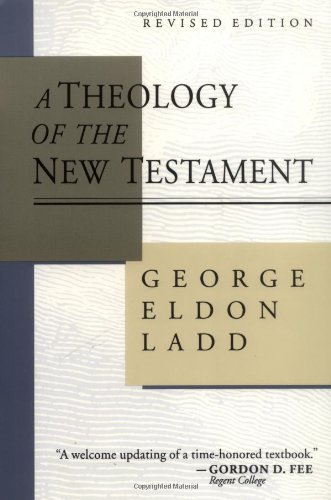
Quotes by George Eldon Ladd
Furthermore, a close study of the text nowhere suggests that the stone of the tomb was rolled away from the tomb to let Jesus out. The earthquake and rolling back of the stone recorded in Matthew (28:2) as a sign of a wonderful event, not as the event itself. There can be only one conclusion: the body of Jesus was gone before the stone was rolled away. It did not need to be removed for Him to escape the tomb; He had already escaped it. The removal of the stone was for the disciples, not for Jesus.
We may conclude that the normal pattern is that the baptism of the Spirit occurs at the moment of saving faith, which in the New Testament times was practically simultaneous with water baptism, incorporating believers into the church.
The Holy Spirit chose as the language of the New Testament revelation the colloquial language of everyday people, not an ancient classical idea. The modern insistence upon the supremacy of the King James Version of 1611 represents a reversal of the action of the Holy Spirit by insisting that for us the best idiom for the word of God is not the modern colloquial idiom, but the ancient classical language of Shakespeare.
As the messiahship of Christ involved two phases, a coming in humility to suffer and die, and a coming in power and glory to reign, so the kingdom is to be manifested in two realms: the present realm of righteousness or salvation when men may accept or reject the kingdom, and the future realm when the powers of the kingdom shall be manifested in visible glory. The former was inaugurated in insignificant beginnings without outward display, and those who accept it are to live intermingled with those who reject it until the consummation. Then the kingdom will be disclosed in a mighty manifestation of power and glory. God’s kingdom will come; and the ultimate state will witness the perfect realization of the will of God everywhere and forever.
When applied to Christians, holiness or sanctification is not in the first place an ethical concept although it includes an ethical aspect. It denotes first of all a soteriological truth that Christians belong to God. They are God’s people. This is why the most common use of hagios in Paul is to designate all Christians as saints – the people of God.
God alone knows the definition of terms [here]. I cannot precisely define who all the nations are, but I do not need to know. I know only one thing: Christ has not yet returned; therefore, the task is not yet done. When it is done, Christ will come. Our responsibility is not to insist on defining the terms; our responsibility is to complete the task. So long as Christ does not return, our work is undone. Let us get busy and complete our mission.
Although the church will be on earth in these final terrible days and will suffer fierce persecution and martyrdom at the hands of the beast, she will be kept from the hour of trial which is coming upon the pagan world (see Rev. 3:10).
The heart of the Adamic temptation was to grasp for equality with God (Gen. 3:5). Adam attempted to seize equality with God; Christ did not. By contrast Christ chose the way of self-emptying rather than self-aggrandizement.
Christ’s atoning work does not change God’s wrath to love, for God’s love is itself the source of the atonement.
Paul [addressed] the Corinthians as “those sanctified in Christ Jesus, called to be saints” (1 Cor. 1:2). The congregation in Corinth was anything but a “holy” people in terms of life and conduct; false teaching, schisms, and immorality marred the church. Still, it was a congregation of saints, of the sanctified, because in spite of the sinful conduct of many of its members and the worldly character of the church itself, it was still the church of God in Corinth.
The idea that the unity of the church found expression in some kind of external organization or ecclesiastical structure finds no support in the New Testament. Furthermore, the idea of denominations would be abhorrent to [the Apostle] Paul. The nearest thing to denominations was the sects in Corinth that Paul heartily condemned (1 Cor. 1:12ff).
This has led us to designate Jesus’ resurrection as an eschatological event. It is an anticipation of the end. To speak crudely, it is a piece of eschatology split off from the end and planted in history. The end has begun; the future is present.

